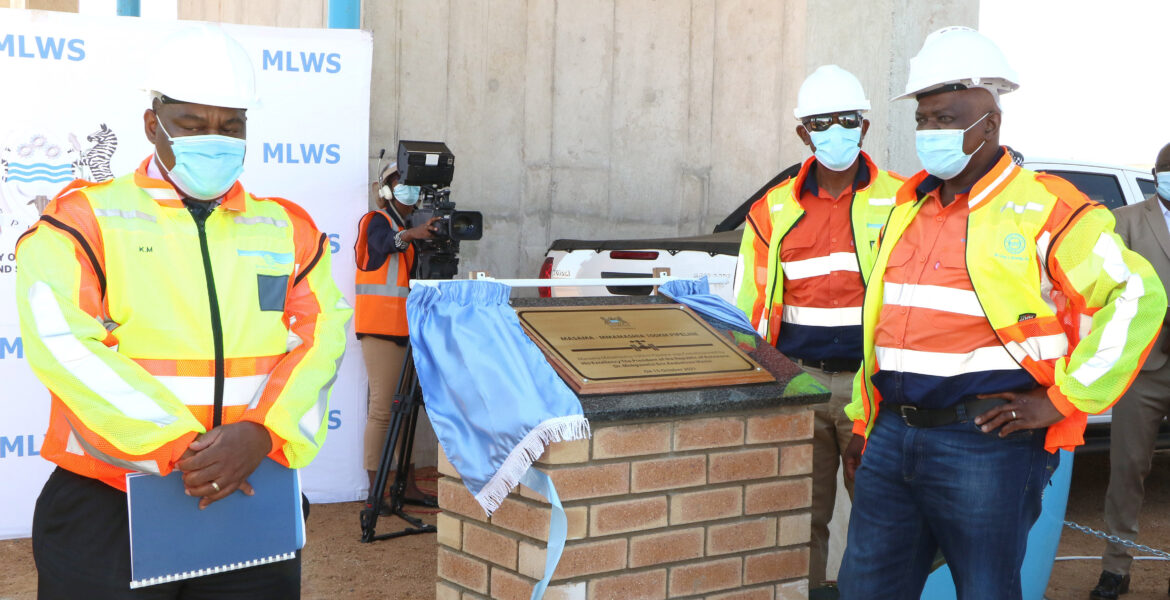RAP agrees with the perspective of the Catholic Church that “water needs to be given the central place it deserves in the framework of public policy”, writes Brother Chairman of the Real Alternative Party, GAONTEBALE MOKGOSI
The BDP has irretrievably shifted from its core political principle. This shameful, scandalous and reactionary action by the BDP government is as a result of its neoliberal vision which rejects rights claims, including the right to a free basic minimum amount of potable water.
BDP politics of now entrenches water in the market-based ideas and language of cost recovery and profitability proliferation. Yet this is a shift away from Sir Seretse Khama`s political principles which were so rooted in ideas of social justice. During his time as president, Seretse Khama rejected commodification of water services to citizens. He deliberately instituted the Department of Water Affairs for the supply of drinking water to homesteads at affordable reasonable prices/rates, saying at any pointing time no Motswana should be denied access to safe and clean water, even upon and long after my death
The point is that Seretse Khama wanted the national water reticulation system to be people-focused and accessible to communities at all levels. Yet, instead of emulating the founder of their party, the BDP has deteriorated into a neoliberal formation engendered in the political economy that subscribes to pushing up prices of goods and services.
The close links between water, sanitation and human dignity
RAP is concerned that the harshest impacts of the Water Utilities disconnection falls on those who are already facing the biggest challenges and inequalities such as low-income earners, informal traders, female-headed households, children, the elderly, and people living with disabled disabilities. The disruption of water supply and disconnection of poor households exacerbates COVID-19 and increases the risk of other disease outbreaks. Water deprivation increases the chronic stress of children in their school performance. It is against this background that RAP is against the disconnections of water supply without assessing existing inequalities among users and why some are unable to pay.
It is absolutely wrong to subject access to water entirely to market conditions that are basically geared at profit. Although payment is required for water services, non-payment cannot be the basis for cutting the supply of potable water to defaulting citizens because water is fundamental for human survival and for leading a life in dignity. It is thus the position of RAP that the water disconnections amount to a threat to the right to life and health which itself includes the right to decent accommodation and respect for family life.
As envisaged in the International Covenant on Economic, Social and Cultural Rights (ICESCR) which makes the link between the right to water and the enjoyment of health and other human rights, including housing, i.e. for “personal and domestic uses”, “drinking, personal sanitation, washing of clothes, food preparation, personal and household hygiene”, RAP is calling on the BDP government for the recognition of the right to water and sanitation. Given that clean water is necessary to prevent death and dehydration, to reduce the risk of water-related diseases, and to provide for basic cooking and hygienic requirements as emphasised in the ICESCR, RAP is calling on the BDP state to revise with immediate effect its draconian decision of water disconnections and to reconnect water supply, especially to households suffering from loss of income, low-income, poorly served areas and educational facilities.
There is also the need to look into the inconsistent, doubtful and suspicious water tariffs as well as ageing, and dilapidated infrastructure. It is our strong view that they could be the most important factors that play a significant role in determining the sky rocketing water bills that result in unfair disconnections. RAP further implores the BDP government to adopt an open participatory approach in water management that involves users, planners and policy-makers at all levels. Furthermore, as the global pandemic recedes, there is need to continue to strive towards long-term solutions, protecting the most marginalised now, and against future outbreaks.
Employment growth and social protection measures for a more equitable future must be central to the BDP government`s transformative shift. The BDP`s post-pandemic economic recovery plans should provide for mechanisms that ensure the affordability of services for all. RAP also calls for the reframing of Botswana constitution to recognise the human right of water and sanitation outside the neoliberal regime of commodification.
The Botswana constitution that is supposedly being amended must explicitly forgive any water debts for those living in poverty and to those with vulnerable health conditions.
The new constitution must have provision for a water ombudsman/arbitrator to settle disputes of unpaid water bills and to give people a fair hearing. RAP indeed agrees with the Catholic perspective that “water needs to be given the central place it deserves in the framework of public policy”.
Brother Chairman
Gaontebale Mokgosi
Real Alternative Party

